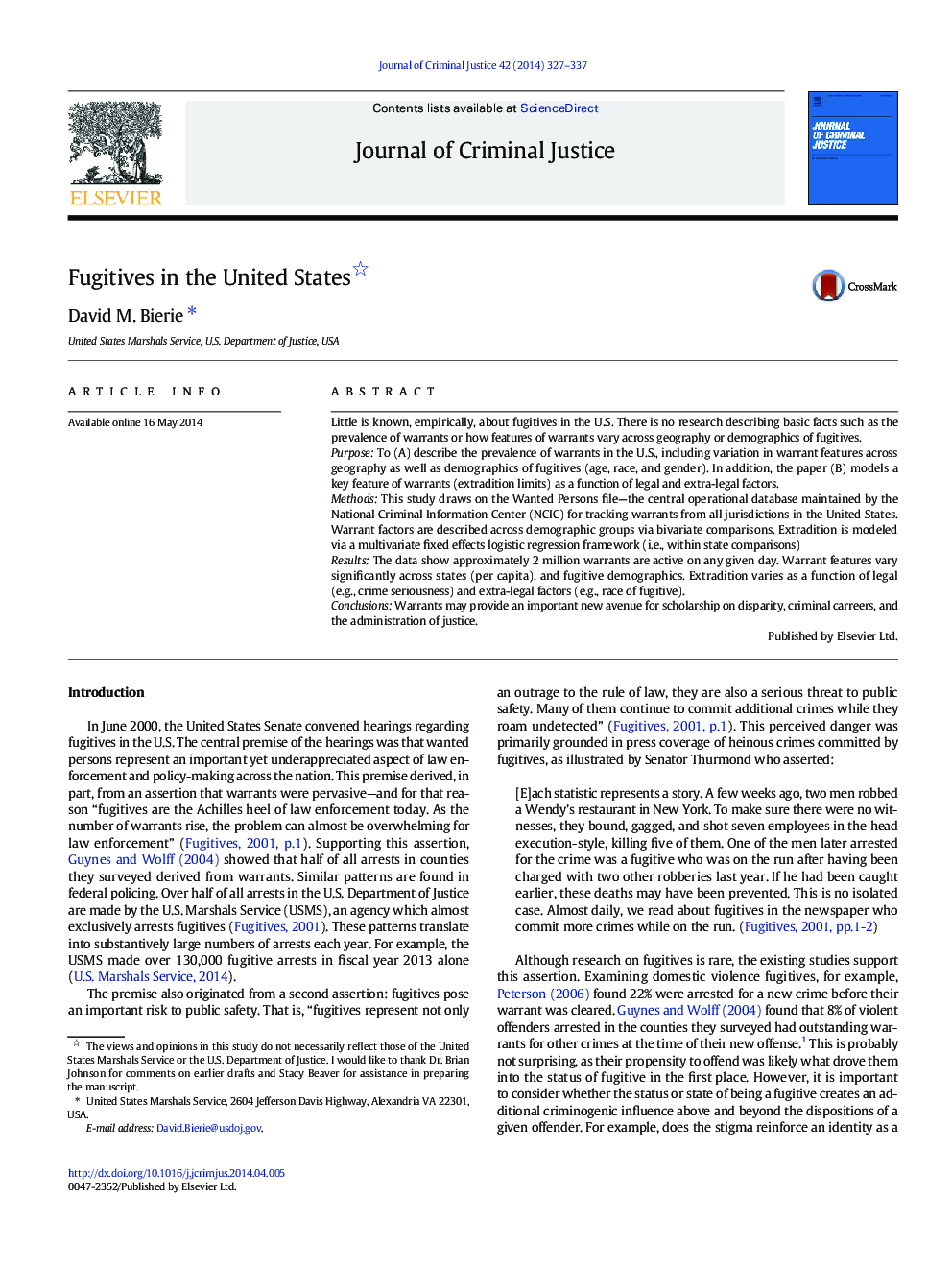| کد مقاله | کد نشریه | سال انتشار | مقاله انگلیسی | نسخه تمام متن |
|---|---|---|---|---|
| 882672 | 912012 | 2014 | 11 صفحه PDF | دانلود رایگان |
• There are approximately 2 million active warrants on any given day
• A substantively large number of warrants are for serious crime (e.g., over 11,000 for homicide)
• Warrants vary in important ways across states (per capita)
• Warrants vary across demographics of fugitives (age, race, and gender)
• Extra-legal factors (e.g., race) predicts whether a warrant allows extradition
Little is known, empirically, about fugitives in the U.S. There is no research describing basic facts such as the prevalence of warrants or how features of warrants vary across geography or demographics of fugitives.PurposeTo (A) describe the prevalence of warrants in the U.S., including variation in warrant features across geography as well as demographics of fugitives (age, race, and gender). In addition, the paper (B) models a key feature of warrants (extradition limits) as a function of legal and extra-legal factors.MethodsThis study draws on the Wanted Persons file—the central operational database maintained by the National Criminal Information Center (NCIC) for tracking warrants from all jurisdictions in the United States. Warrant factors are described across demographic groups via bivariate comparisons. Extradition is modeled via a multivariate fixed effects logistic regression framework (i.e., within state comparisons)ResultsThe data show approximately 2 million warrants are active on any given day. Warrant features vary significantly across states (per capita), and fugitive demographics. Extradition varies as a function of legal (e.g., crime seriousness) and extra-legal factors (e.g., race of fugitive).ConclusionsWarrants may provide an important new avenue for scholarship on disparity, criminal carreers, and the administration of justice.
Journal: Journal of Criminal Justice - Volume 42, Issue 4, July–August 2014, Pages 327–337
